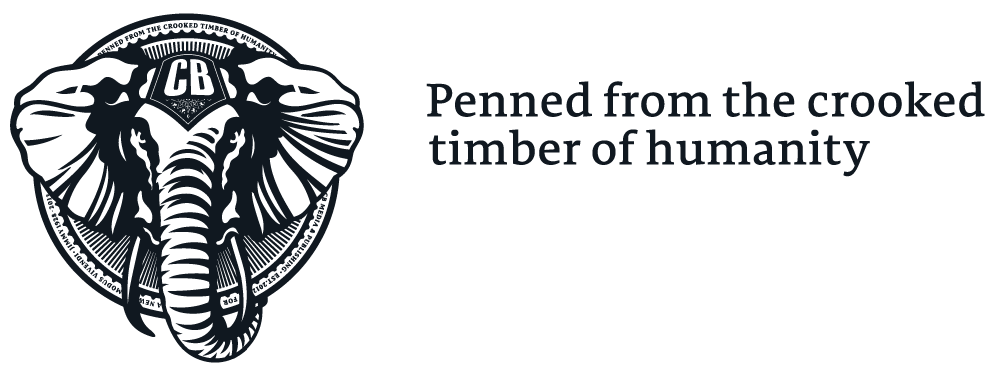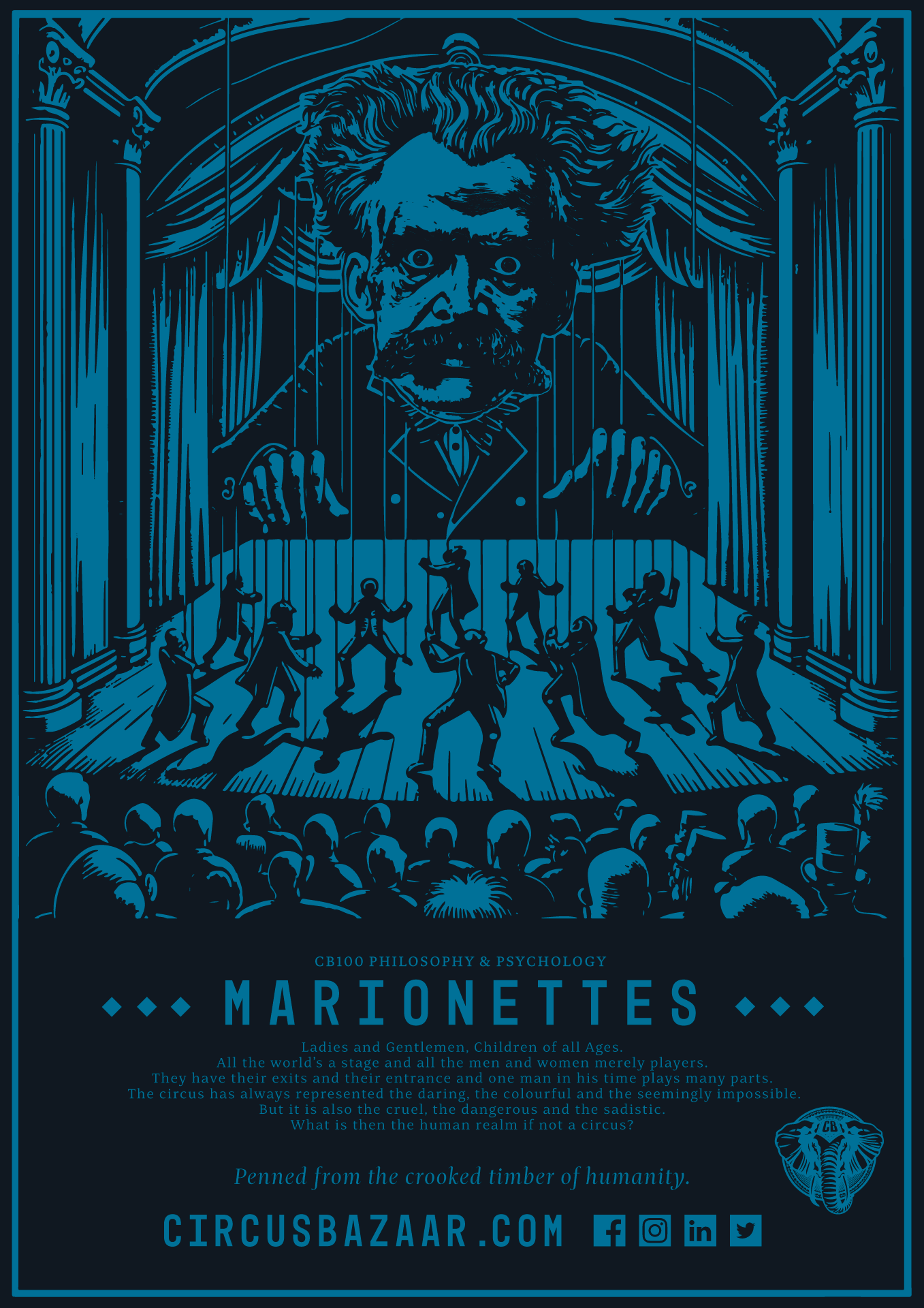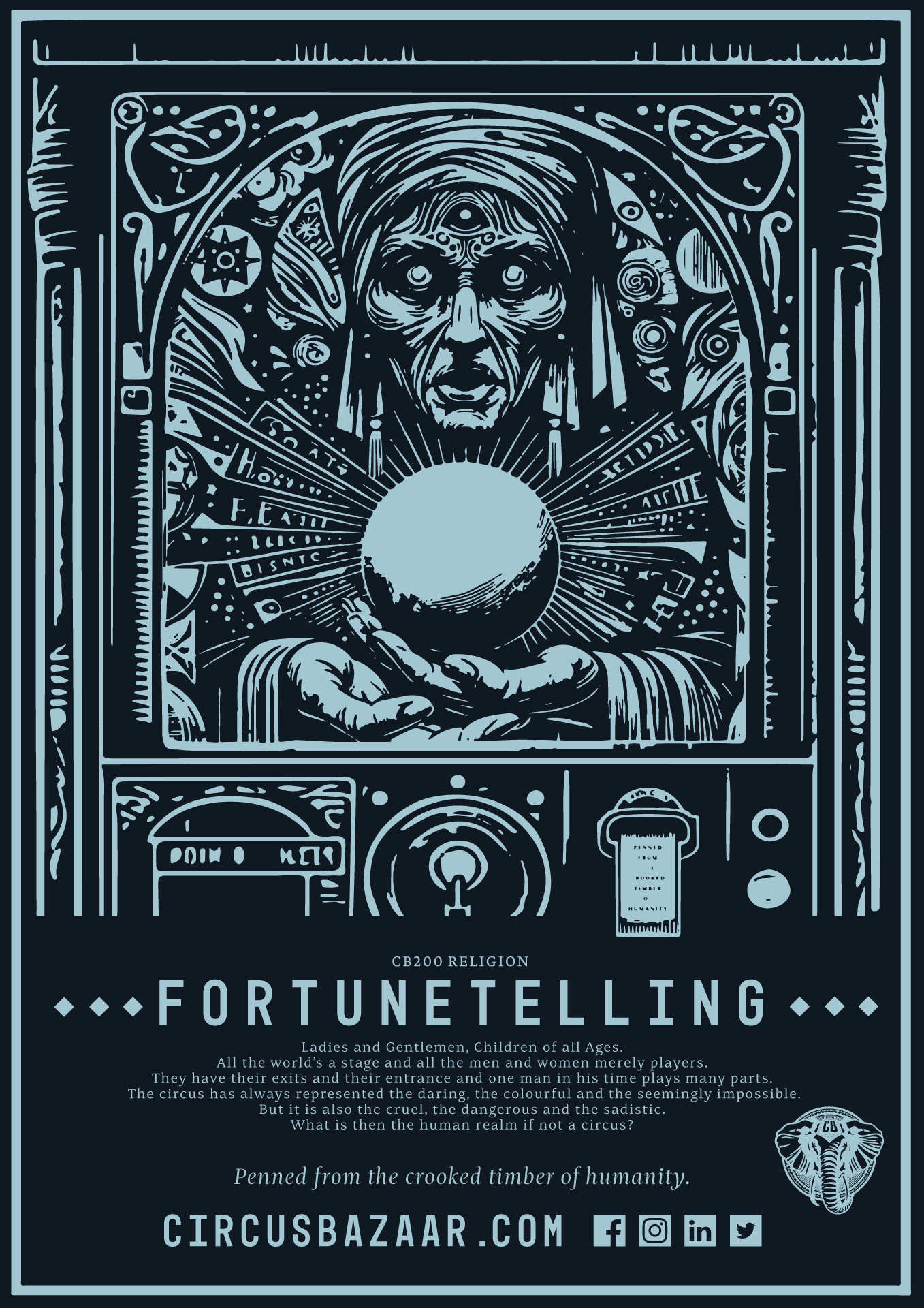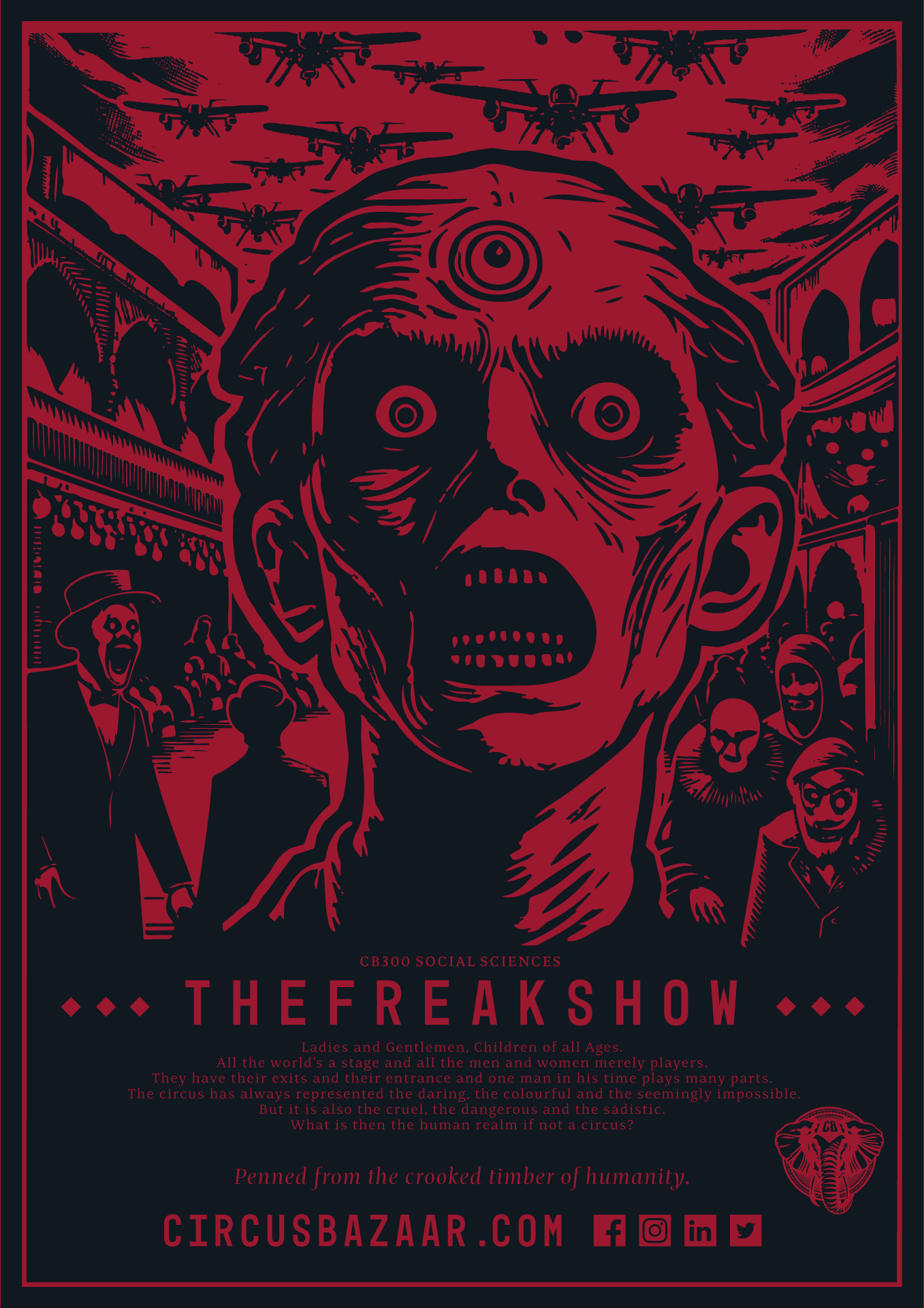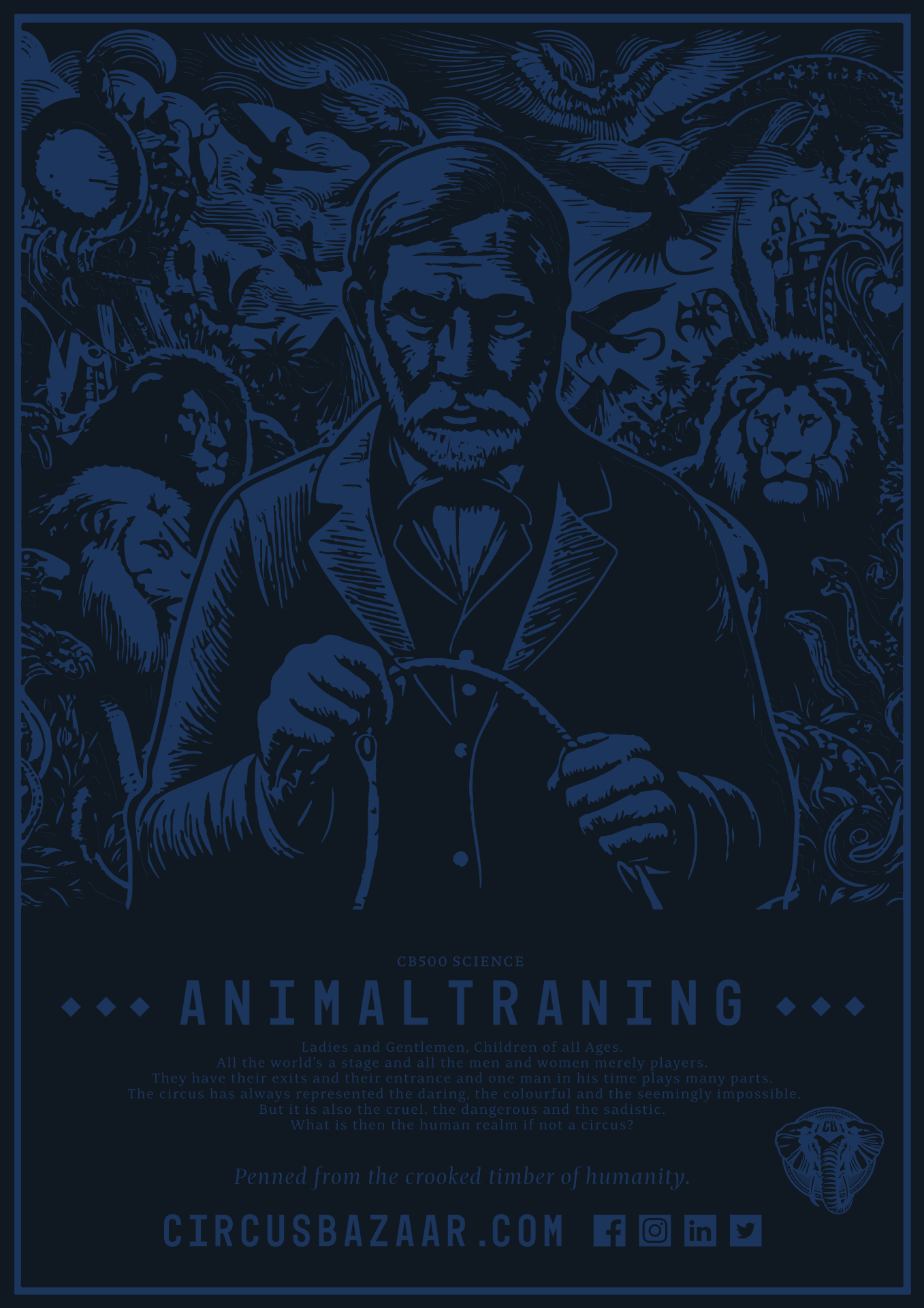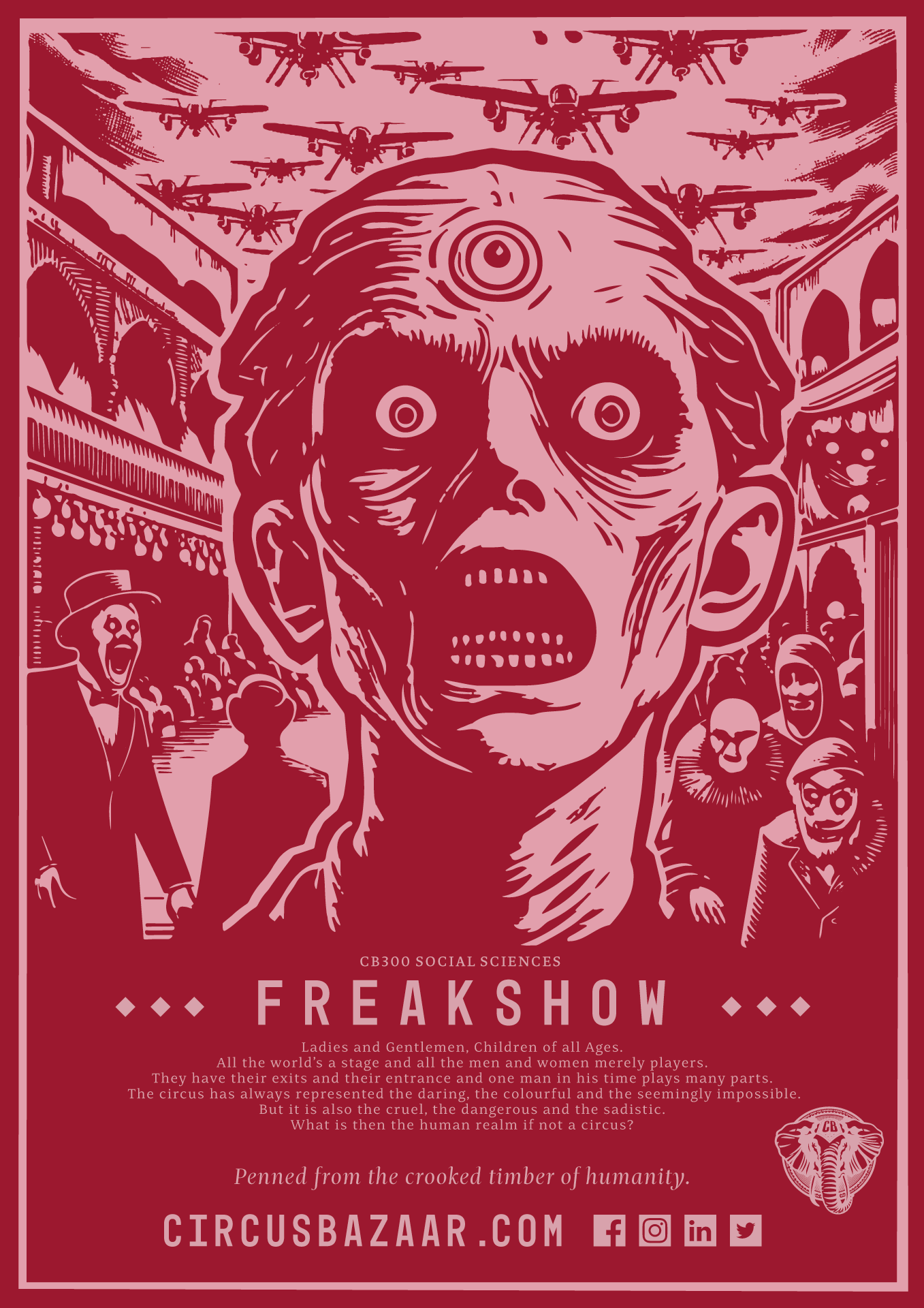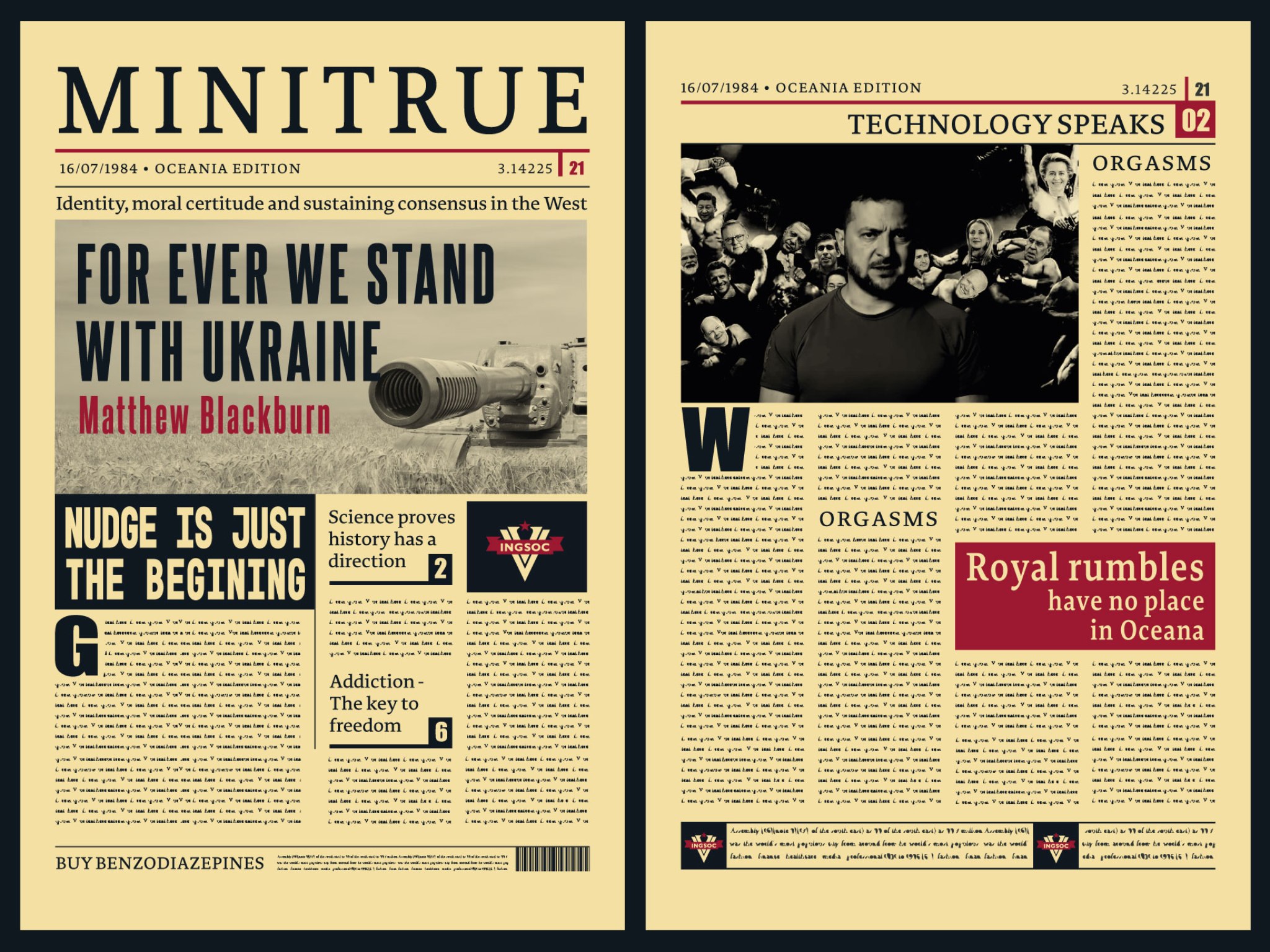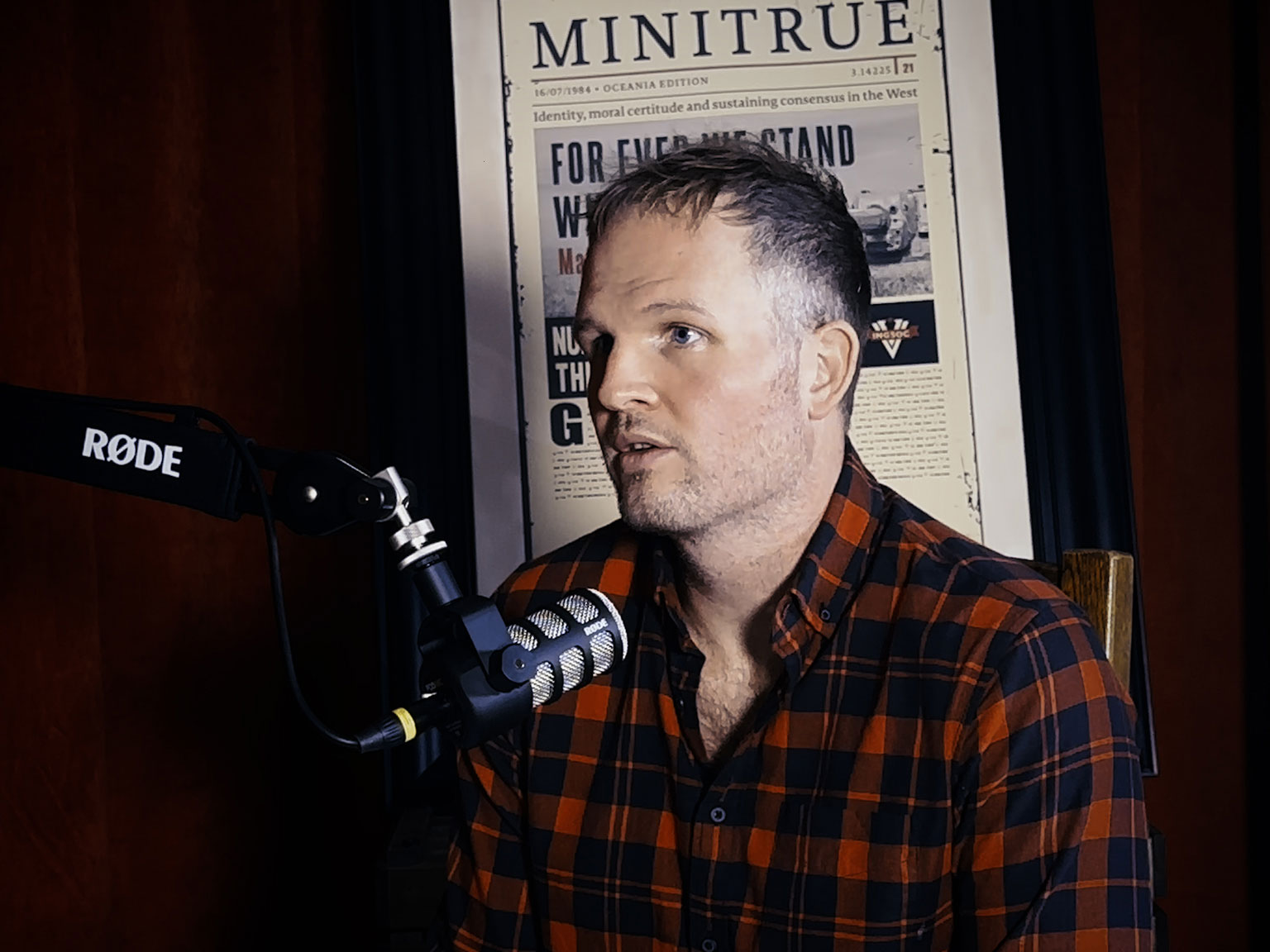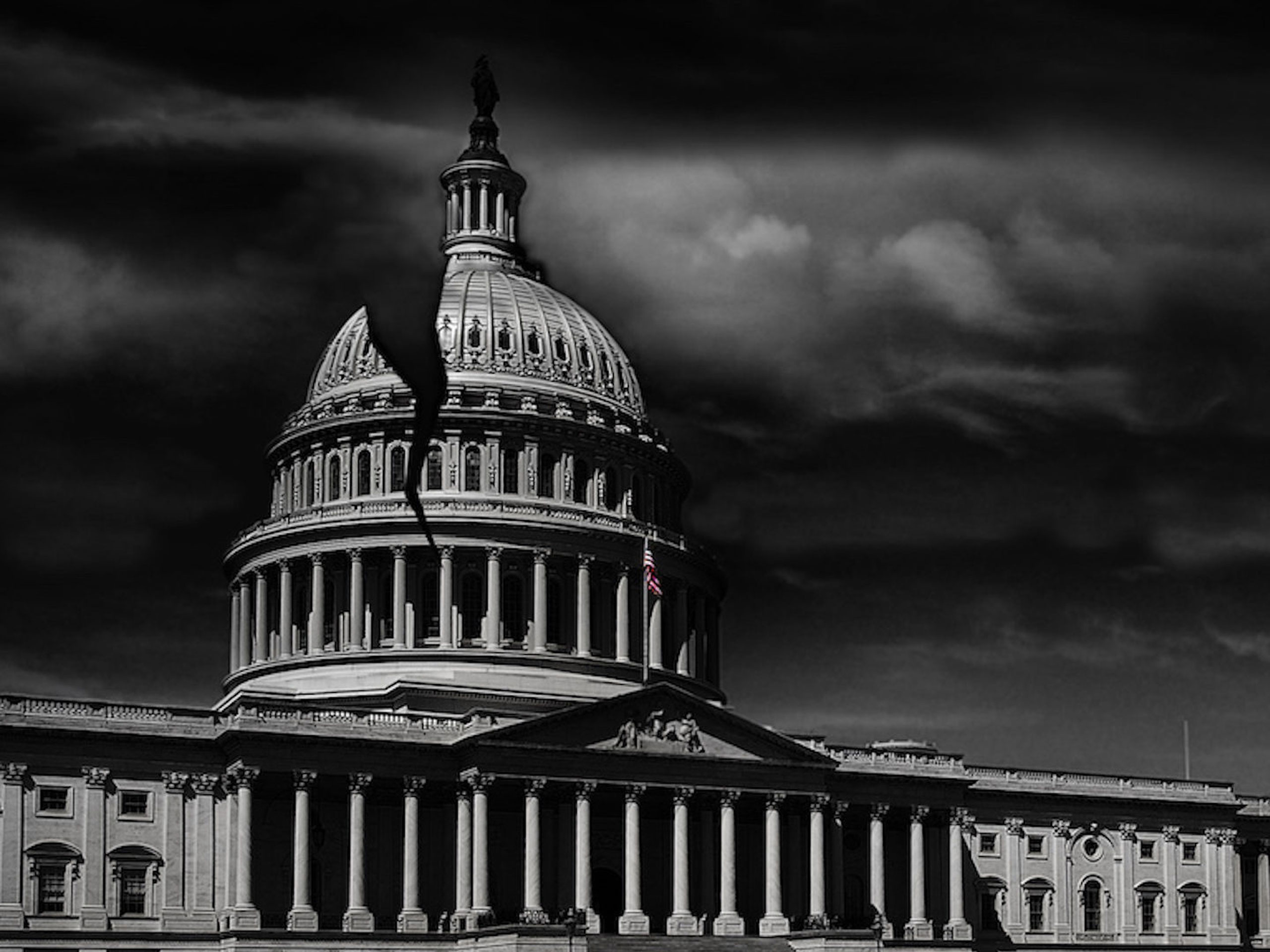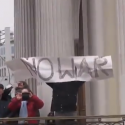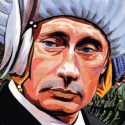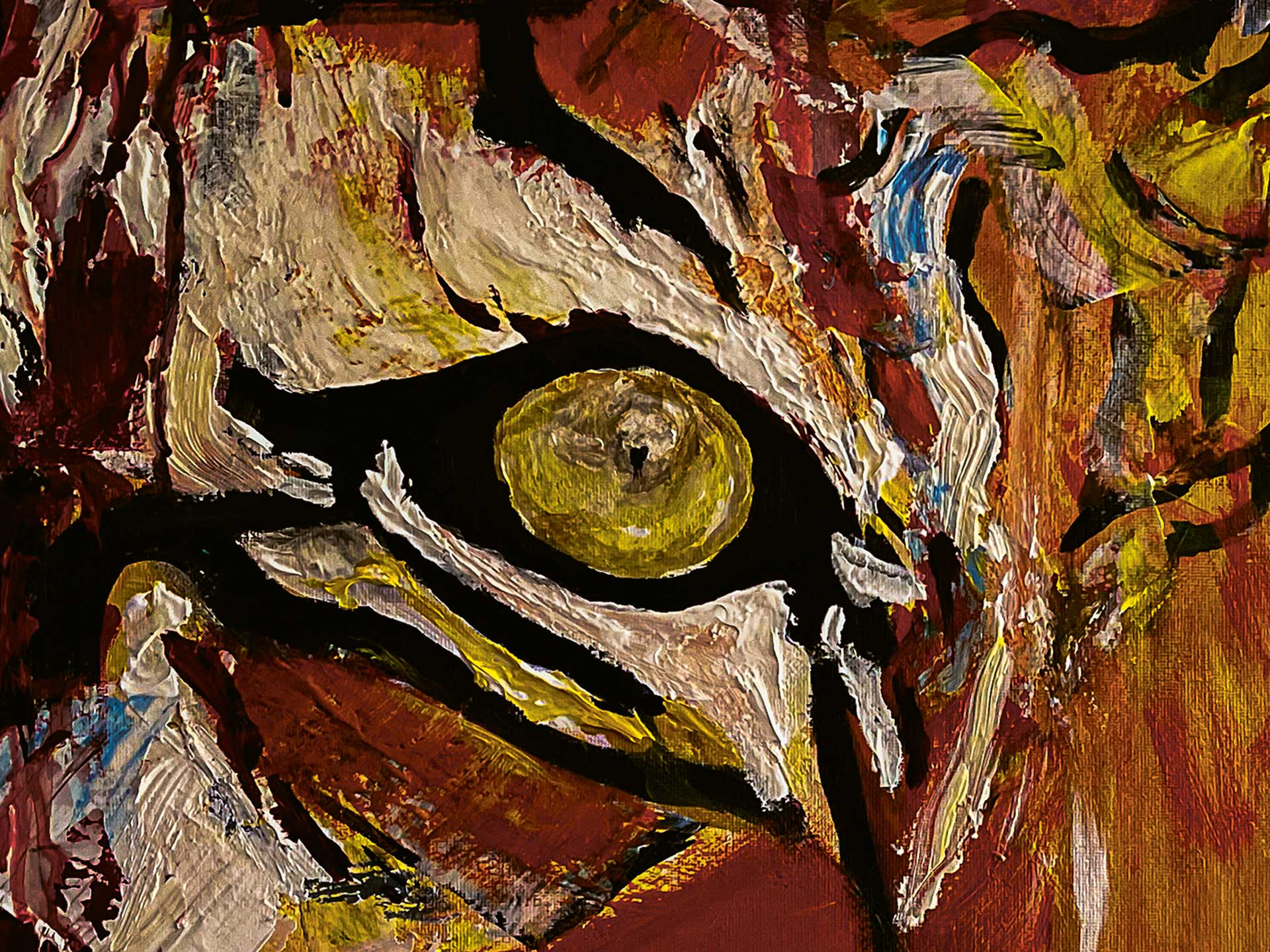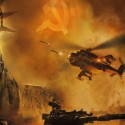Around the world in 2022 and 2023, I have met a broad range of Westerners absolutely committed to the cause of standing with Ukraine against Putin ‘for as long as it takes’. This includes a remarkable spectrum, from extreme-left anti-fascists, environmentalists and ‘woke’ activists to ‘based’ conservatives, populists and libertarians. Their unity is founded on a simple, black and white moral position that has proven durable.
Marching in step and repeating the same discourses, whether within academia, think tanks, government or the parliamentary opposition, the pattern is clear. Zelenskyy is exalted as a new Churchill, the valour of the Ukrainians is celebrated, and calls are made for more weapons to be sent. The corollary to celebrating Ukrainian victories is a strong condemnation for Putin as a ‘new Hitler’, along with the view that Russia is the bête noire of not only the Western countries but the whole world.
The ceremonial hugging of Zelenskyy and ending of speeches with ‘Slava Ukraini’ is a regular event in European capitals. What is fascinating is how EU leaders such as Josep Borrell and Ursula von der Leyen combine pro-Ukraine sentiment with the message that supporting Kyiv ensures the future of Europe. Zelenskyy has demanded more weapons to fight off ‘the most anti-European force of the modern world’. The imagery of Russia as the dark and cruel barbarian and Ukraine the shining beacon of light provides a basis not only for healing polarised and divided Western polities but also for regenerating the very notion of the West.
The West’s proxy patriotism and enthusiastic militarism
In due course, we will all discover whether this vision of Western regeneration can be sustained as the Russo–Ukraine war unfolds. However, a year into the war, it can be seen that Ukraine and Russia, the two combatants, differ from the West in how each of them instrumentalises identity. In Ukraine, nationalist sentiment has long been stirred, producing radical revisionist memory politics and the rejection of Russia’s ‘imperial domination’. In Russia, the traumatic experience of the Soviet collapse and its negative reaction to US ‘unipolar dominance’ have led to its demand for recognition as a great power, along with a corresponding surge in great-power patriotism. Since 2014, Ukrainian nationalism and Russian great-power patriotism have fed off each other in a toxic manner, with the former becoming intensely anti-Russian and the latter venomously anti-Western and anti-Ukrainian.
In the West, a very different scenario appears to exist, comprising a proxy patriotism for Ukraine – experienced at a safe distance without the death of one’s own citizens – and amilitaristic enthusiasm for Ukraine’s coming victory which does not take seriously the dangers of escalation. Meanwhile, in an absence of deep cultural or historical ties to either country, Western audiences are not influenced by memory politics, nationalist sentiment or securitised patriotism the way Russians and Ukrainians are.
A dogmatic chain of causality predicts that if the West unites to defeat Putin, their victory will herald a new dawn for civilisation. Alternatively, if the West is to buckle or surrender, it will lose everything. This view lacks nuance and shades of grey, and fails to consider how the war connects to other global developments. Naturally, the latter approach facilitates an understanding of the broader risks, benefits and costs to the whole world, while the binary logic of the former approach narrows its scope to a moral and messianic quest simply ‘to save the world from Putin’s aggression’.
In my understanding, the bulk of Western media reporting of the war’s first year has consistently reinforced this dogmatic moralism. Such moralistic thinking is amplified on social media, repeated on mainstream mass media and then accepted by public figures and corporations. This process helps explain the sharp response to the outbreak of open hostilities between Russia and Ukraine after years of fragile and uncertain ceasefire. Interestingly, many of those who would usually self-identify as ‘progressive’, ‘liberal’ or ‘left-wing’ were also swept away in a remarkable wave of ‘Slava Ukraini’ fervour. This is despite the fact that such people would usually profess scepticism towards patriotism or the notion of sacrificing one’s life for one’s nation.
In a similar unprecedented shift, progressives and liberals also embraced massive increases in military spending, disregarding the risks of escalation and direct war with Russia. In a flash, most of the left became explicitly pro-NATO and cheered Ukraine on; those who questioned the military–industrial complex or expressed concerns about nuclear war were generally marginalised or shouted down, if they were allowed to express their views in the media at all. It is hard to escape the impression that social media groupthink and saturated 24-7 mainstream media coverage have sustained both stances of proxy patriotism and enthusiastic militarism.
The doublethink behind the groupthink
There are three areas of irrational cognitive dissonance – what Orwell called ‘doublethink’ – evident in the Western media’s coverage of the war. The first is the portrayal of Russia as simultaneously an existential threat to Europe but also a weak military power that Ukraine can expel from its territories, with the right amount of support. The second is how the expressed absolute unwillingness to fight a full-scale war against Russia (with all its potential for a nuclear Armageddon) is combined with a willingness to be de facto combatants by conducting economic warfare against Russia while providing the intelligence and military support without which Ukraine could not fight the war. The third is the call to stand with Ukrainians in a bloody war of attrition in which one does not send one’s own citizens to die in the ‘meatgrinders’ in the Donbas.
The Western media’s emotive, moralistic rhetoric and unambiguous friend–enemy presentation of the war comprise what is essentially a wartime propaganda model, which suggests that an information war has been waged within the West for the purpose of mobilising pro-Ukraine sentiment across the political spectrum. One wonders about the extent to which mass media bosses are consciously on board with this information campaign, or if they lack an understanding of contrary perspectives or simply avoid investigating inconvenient facts, as doing so would complicate their reporting work. Whatever the reason for the lack of media coverage, these inconvenient facts are worth summarising.
The distortion of the basic political issues behind the conflict
Western audiences have been steadily bombarded with the repeated insistence that Russia’s actions were unprovoked and that Putin could have no valid reason to invade Ukraine. President Biden set the tone for this on the day Putin launched his invasion, claiming that it had nothing to do with security concerns and was simply an act of ‘naked aggression’ reflecting ‘Putin’s desire for empire’. This message has been repeated ad nauseam in the media for over a year while omitting to discuss three critical factors central to understanding why Russia would choose military force over diplomacy.
The first of these factors deals with a basic principle of the United Nations: namely, that no country can enhance its own security at the expense of another’s. Russia previously made it clear that it viewed NATO expansion and Western powers’ training and arming of Ukraine’s military precisely in these terms. Over the course of 2021, Russia made repeated attempts to reach an agreement with the USA, NATO and the EU over a common security architecture in Europe that would include Russia. As these diplomatic efforts failed and the media covered Russia’s reported intention to invade Ukraine, there was far less emphasis placed on how to avoid war than on admonitions not to appease Putin. This established a pattern of explaining the conflict solely in terms of Putin’s motivations and ambitions, which simplified the issue down to one person with evil intent. The idea that Russia had legitimate concerns about how Western engagement in a neighbouring state would affect its national security was waved away with the answer that Ukraine was a free country and could choose its own partners. If only America had been so generous to Fidel Castro, the Cuban Missile Crisis and sixty-five years of US sanctions against the island nation of Cuba might well have been avoided.
The second factor not given serious coverage is the dysfunctionality of the Minsk Accords, to which neither the Ukrainians nor the Russians fully adhered. Reporting by OSCE indicated that the more serious violations, such as shelling and kidnapping, were perpetrated by the Ukrainian side. Furthermore, Kyiv initiated the military build-up in April 2021. Instead of pressuring Kyiv to pull back, Western governments did the opposite: they indicated strong support for Kyiv by sending more weapons and advisers and holding various bilateral and group meetings across 2021. The subsequent admissions of Angela Merkel, François Hollande and Petro Poroshenko in 2022 that the Minsk Accords were signed not in earnest for peace but only to ‘buy Ukraine time’, only underline why the Russians lost faith in further negotiations with the West and Ukraine.
The third factor is how Ukrainian politics changed after Biden entered office. A language law mandating the use of Ukrainian language in the service industry passed in January 2021, several months before the arrest of opposition leader Viktor Medvedchuk in May; the following month, the Ukrainian president stated a new determination to retake Crimea.Zelenskyy thus shifted to a more explicitly anti-Moscow stance, began the open repression of the so-called ‘pro-Russian opposition’, and gave up his efforts to achieve a lasting peace in the Donbas, breaking his election promise of 2019. No criticism of this can be found in UK media – whether in terms of stoking conflict or of damaging Ukraine’s democracy. In the same period, the repressive actions of the Russian state received wide media coverage in 2021, while a documentary feature film on jailed oppositionist Alexey Navalny won numerous awards.
Given the way that these critical issues were ignored across 2021, it is easy to perceive why Russian tanks crossing the border on 24 February came as an absolute shock, even though the basic reasons for Moscow’s decision to abandon further diplomacy with the West and Ukraine as fruitless were in plain sight for anyone with an understanding of the Russian perspective.
Spinning the course of the war: Ukraine can win!
The second key feature of the coverage has been to cheer on Ukraine’s military efforts while jeering at Russia’s incompetence. This began with the so-called ‘Battle of Kyiv’, which was presented as an inept Russian attempt to decapitate Ukraine and end the war in one week which failed miserably. Part of the propaganda emphasises that Russia launched a ‘full-scale invasion’ of Ukraine, a term that implies throwing maximum force to invest and occupy a country. From February to September 2022, Russia’s offensive forces comprised less than 200,000 troops (which was fewer than the number of Ukrainian defenders) and did not employ a US-style shock and awe bombing campaign. Indeed, only with the subsequent escalation of the conflict has Russia edged closer to a larger standing army and a full-war footing.
A crucial thread ignored in Western media is the peace negotiations that began within a week of the war starting. The existence of these talks suggests that part of Moscow’s strategy was to use limited military force to impel Kyiv to agree to a new deal in place of the now defunct Minsk Accords. While former Israeli Prime Minister Naftali Bennett, who was part of the negotiations, claimed that a deal was basically agreed upon, very little was made of this in Western coverage. When Kyiv withdrew from these negotiations, they did so with Western encouragement and the promise of more aid to inflict a serious defeat upon Russia. If the Russians were serious about a peace deal and the West refused, this undermines the Western narrative of singular Russian aggression and imperialism.
Instead of covering peace talks and a way out of the bloodshed, the media focus was on Russian military incompetence around Kyiv, selling their withdrawal from Kyiv as a great defeat while playing up Ukraine’s chances of full victory. When the Russians shifted their military activity to a steady war of attrition to take Luhansk Oblast in May, the media provided a preview of the destructive means Russia would use to prosecute the war. Instead of taking pause to think about what this war of attrition could mean for Ukraine against a nuclear-armed opponent with more than three times the population and a self-sufficient munitions industry, the media went in the opposite direction: it would be Russia that would collapse from the strain of the war as its economy failed, political elites defected and military morale evaporated. To sustain this picture, Russian military victories (such as the fall of Mariupol) were presented as pyrrhic, while any Ukrainian successes (such as the sinking of the Moskva or the recapture of Snake Island) were portrayed as heroic and crucial triumphs, indicating that Ukraine could win the war.
Throughout 2022, military developments all pointed to an escalation of the conflict, in which Russia would use more and more of its arsenal to destroy Ukraine and inflict losses while NATO countries would become more deeply involved. While media coverage sustained triumphalism around Ukraine’s victories, no broader analysis of the risks and costs of continuing the war in this fashion was shown; instead, there was only the repetition of the claim that more sanctions against Russia and more weapons sent to Ukraine would ensure Putin’s complete defeat.
Ignoring Ukrainian wrongdoing; amplifying Russian wrongdoing
Another classic feature of the coverage has been to present Ukrainians as both ‘worthy victims’ (civilians caught in war, or refugees whose lives have been upturned) and brave heroes (soldiers at the front, or Ukraine’s resolute leaders making speeches). The valorised Ukrainians are then connected directly to national and EU figures, who are shown meeting them in various contexts or simply promising more support to them in speeches and meetings. A key element to this has been an unspoken ban on any negative reporting of Ukraine’s actions. The reckless Ukrainian shelling of the Zaphorizhzhia power plant was not condemned, but rather presented as if the Russians, who held the facility, were bombing themselves. An Amnesty International report that exposed Ukrainian military atrocities was discussed in the media not in terms of its content but as a secondary focus to the angry reactions of Ukrainian officials, which led the Ukrainian head of Amnesty to resign.
The other side of this informational warfare is to present Russia in the darkest terms possible, as a perpetrator of war crimes that must be held to account in a new Nuremburg process. These accusations began at Bucha in April 2022, during a Russian withdrawal that was actually part of the abovementioned peace negotiations. They reached a new level in the autumn, when Kyiv demanded that the Russian leadership be denounced as war criminals and Russia labelled a ‘terrorist state’. The European Parliament complied and named Russia ‘a state sponsor of terrorism’. The International Criminal Court followed suit by issuing an outlandish arrest warrant for Putin and other Russian leaders.
Finally, Russia’s offensive operations in the war were characterised as ‘brutal’, involving human wave attacks in which massive numbers of Russians apparently died. It is worth noting that in a war so highly documented through video and drone footage, there is little evidence of these ‘human wave’ attacks. Indeed, a recent RUSI report accepts that Russian infantry and artillery tactics were significantly adapted in 2022, blowing up the media claim of repeated mindless frontal assaults. Nonetheless, the Russians were presented as having cruel and incompetent commanders who pushed their soldiers into frontal assaults with huge losses. At the centre of such coverage was the infamous Wagner Private Military Company and its recruitment of prisoners, who were treated as expendable and encouraged to commit atrocities. Such reporting usually regurgitated Ukrainian propaganda, lacked any verification from independent frontline correspondents and had the result of de-humanising the Russian enemy.
Sustaining black and white morality: the future of the pro-Ukraine consensus
Some remain tempted to regard the Western publics’ united support of Ukraine as an indicator of some wider ideological transformation that will somehow save the global liberal order and rejuvenate the West. At this point, it is more likely that these sentiments are paper thin, and that media coverage plays a far more important role than any sea change within public opinion. Most Westerners are not transforming into Ukrainian nationalists or committed pro-NATO liberal interventionists ready to commit more resources to an open-ended crusade against authoritarianism. Instead, their stances reflect a black and white moral conviction sustained by informational warfare, which forestalls any debate or cost–risk–benefit-style analysis.
On the other hand, an element of Western identity politics is certainly at work here, in the way that the war has helped generate the feeling that the West stands up for what is right, and that the West is morally good. There is a certain hubris in this vision of saving Ukraine, ruining Russia, and bringing about a new dawn of Western progress and civilisation. While much of the non-West may scoff at what they regard as self-serving neo-colonial pretensions, the insular and self-regarding Western media see only themselves – while the narcissistic pond into which they gaze reflects only beautiful images. Western media spaces have largely recast this deadly and ruinous war as a fantastical recreation of the West’s finest hour, World War Two. This time Zelenskyy is the triumphant new Churchill and Putin will soon blow his brains out in a bunker, his country utterly vanquished.
Today’s ideological simplicity contrasts with the more nuanced balance of the Cold War, even though the world was more divided and less interconnected back then. Meanwhile, the West’s realistic objective in Ukraine is not clear. Perhaps this is absent, as it was in the various recent wars in the Middle East. While debacles in Afghanistan, Iraq and Libya ended or were forgotten without incurring a huge cost to the West, when it comes to the Russo–Ukraine war, it may be that we stand perched on the precipice of something altogether more unpredictably destructive.
